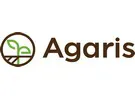Local, circular, sustainable and innovative. This is the unique demonstration project coordinated between Releaf, Agaris and the City of Ghent. For this project, the partners investigated how green waste from the local area, in particular grass waste from urban spaces, can be reused and upgraded into a renewable raw material for potting soil.
Local and sustainable
It is a well-known fact within the horticultural sector: the tendency to use less peat in substrates. This has motivated many substrate producers to look for high-quality, renewable raw materials. And this type of innovation is also a priority for Agaris. “We have noticed a general shift from using peat,” explains Jeroen De Zaeytijd, Innovation Manager at Agaris. “This is why, as a substrate producer, we are always looking for new, preferably local, high-quality raw materials.”
This was the impetus to collaborate with Releaf, a Ghent start-up. Their mission is to upgrade green waste streams from agriculture, cities and municipalities. “Today, a lot of green agricultural biomass remains on the fields, and cuttings from cities are processed into compost; but we want to get more out of this biomass waste by using it as a raw material,” enthuses Sander Lybaert, researcher at Releaf.
The set-up? Releaf processes the cuttings, supplied by the City of Ghent, into a fibrous pulp and a soluble fraction. Agaris then processes the grass fibers into a substrate that has been tested and optimized via growth trials at the Ornamental Plant Research Centre in Destelbergen. Ultimately, the City of Ghent will reuse the substrate for planting urban greenery. This will close the circle: the green waste stream will be processed into new raw materials, locally and as optimally as possible.
Unique collaboration
Each partner in this project adds its own value, and the collaboration between the different partners is quite unique. “Often an application is developed without the involvement of the person who will market the application,” explains Sander. “It’s completely different here. Thanks to our collaboration with Agaris, we can test whether the application we are developing is valuable. Agaris’s technical knowledge and experience has proven invaluable to Releaf. After all, they can make the translation between product development and the intended application. And that’s the great thing about this project: we both have the same interests, with a common goal.”
“That’s right,” confirms Jeroen. “Agaris and Releaf have many common interests and interfaces: the interest in circularity, innovation, sustainability, and moreover, Ghent. Extraction of the raw material, research and development, up to the final application, all took place in Ghent. This is what makes it a very nice demonstration project in our own backyard.”
For more information: Agaris
Agaris
Skaldenstraat 7a
9042 Gent, Belgium
+32 9 218 03 30
info@agaris.eu
www.agaris.eu
